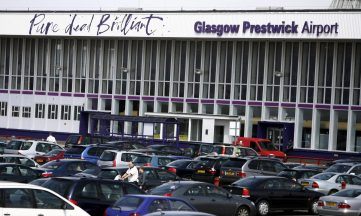New figures from Citizens Advice have revealed the scale of debt people in Scotland owe to energy companies.
In 2023/24, the average amount of energy-related debt that was brought to Scotland’s Citizens Advice Bureau (CAB) network was around £2,300. The figure is significantly higher in remote and rural areas, where the average was £3,047.
Over a third of all Scottish clients who have multiple debts and incomes too low to meet essential living costs had some level of fuel debt as part of their arrears.
Across the energy market as a whole, the average energy debt for consumers with no repayment plan in place was £1,761.
The figures were presented by CAS this week to the energy regulator Ofgem, who had called for evidence on the issue of energy debt.
How rising energy bills have affected CAB clients
-
 A terminally ill client who sought help from CAB managed to accrue debt of over £2,600 as they struggled to pay their heating bills. They had difficulty reading their meter and submitting regular readings due to issues with their mental health. Despite being on the priority services register, the client found supplier assistance limited: a one-time meter reading with only one attempt and a potential month-long wait, or quarterly readings with potentially inaccurate estimates. After consistent bill payments, the supplier claimed the amount stated on the pre-printed bill was not the actual amount owed.
A terminally ill client who sought help from CAB managed to accrue debt of over £2,600 as they struggled to pay their heating bills. They had difficulty reading their meter and submitting regular readings due to issues with their mental health. Despite being on the priority services register, the client found supplier assistance limited: a one-time meter reading with only one attempt and a potential month-long wait, or quarterly readings with potentially inaccurate estimates. After consistent bill payments, the supplier claimed the amount stated on the pre-printed bill was not the actual amount owed. -
 A client with a brain tumour who moved from pay-as-you-go to quarterly billing began receiving debt collection action letters after he was unable to pay a bill for £789 and another for £1,100 in full. The Extra Help Unit, associated with CAB, said he phoned his supplier to arrange an affordable repayment plan but was unable to secure an agreement with the customer service agent.
A client with a brain tumour who moved from pay-as-you-go to quarterly billing began receiving debt collection action letters after he was unable to pay a bill for £789 and another for £1,100 in full. The Extra Help Unit, associated with CAB, said he phoned his supplier to arrange an affordable repayment plan but was unable to secure an agreement with the customer service agent. -
 A pension-aged couple in the north of Scotland with CAB say their lung conditions have worsened since they stopped using their central heating due to rising costs. Their energy bills increased to £170, which caused them to accrue arrears of £490. The couple also started going to bed at 6:30pm to reduce electricity use.
A pension-aged couple in the north of Scotland with CAB say their lung conditions have worsened since they stopped using their central heating due to rising costs. Their energy bills increased to £170, which caused them to accrue arrears of £490. The couple also started going to bed at 6:30pm to reduce electricity use.
CAS social justice spokesperson Matthew Lee said: “This data shows the shocking extent of the energy bills crisis in Scotland.
“And behind the statistics are real people who are struggling to put food on the table and stay in their homes and whose income simply isn’t high enough to pay their bills. So debts like this build up.
“The figure for the average debt is bad enough but the amount for those in remote and rural communities is breath-taking.
“People in northern areas tend to need more energy because the climate is colder and in all rural areas the building stock tends to be older, so less energy efficient.
“But debts like these are just devastating, particularly if they go unpaid so they just grow and grow.
“We’ve made a number of recommendations to Ofgem about tackling this issue. We recognise that the cost of wholesale energy is high, and that energy companies are making some efforts to help customers pay their bills, but these often vary and are not consistent.
“We’d like to see Ofgem being more robust in applying industry-wide good practice in this area, perhaps following the guidelines that the Financial Conduct Authority has adopted in its approach to dealing with people in arrears.
“However, we believe the single biggest measure that could make the most striking difference would be the introduction of a social tariff, applied to the bills of all consumers on low incomes. This would make the significant, long-term change that’s so desperately needed and we urge the industry to adopt it now.
“In the meantime anyone who is struggling with their energy bills, or any other matter can get free, confidential and impartial support from the CAB network.
“We don’t judge, we just help, and we’ll do all we can to reduce or help you manage your debts, however big they are.”
An Ofgem spokesperson said: “We’re grateful to Citizens Advice Scotland for responding to our call for input and we share many of their concerns around the levels of debt people are facing. We will carefully consider their response, along with all others, in the coming weeks.
“Prices are slowly falling as the energy market stabilises. And we have taken action to protect consumers where we can – changing standing charges for prepayment meter customers so they are not charged more than anyone else, and toughening up requirements on suppliers to take care of their customers including by reaching out to them with debt support if they miss payments.
“However, the level of debt in the sector and continuing challenges for many customers means a longer-term and sustainable approach is needed to ensure we have a stronger market and the right support for all struggling consumers. That is why we’re taking a step back to look at the entire energy system as a whole through our ongoing reviews on affordability, standing charges and the future of the price cap.”
Follow STV News on WhatsApp
Scan the QR code on your mobile device for all the latest news from around the country




























